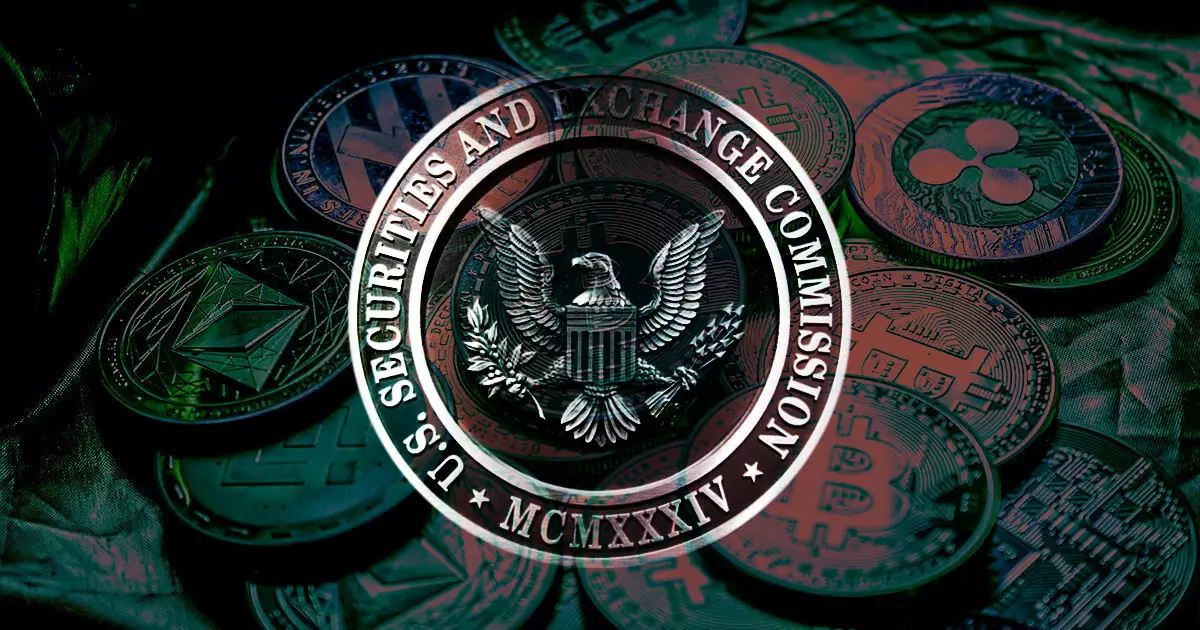The landscape of cryptocurrency regulation is ever-changing, as exemplified by the recent amended complaint filed by the U.S. Securities and Exchange Commission (SEC) against Binance in the District of Columbia. The SEC has made significant procedural updates and legal alterations to its previous filing, an indication of the agency’s continued commitment to enforcing regulations in the dynamic world of digital currencies. This amendment involves a motion under Federal Rule of Civil Procedure 15(a)(2), with the inclusion of a memorandum detailing the rationale behind the revisions, a proposed amended complaint, and a redline version that highlights the adjustments made.
One of the key voices critiquing the SEC’s amended complaint is Paul Grewal, Chief Legal Officer at Coinbase. Through social media, he expressed concerns over the SEC’s approach and the implications stemming from the amended complaint. Grewal pointed out the agency’s apparent regret over its previous claims, particularly regarding the notion that tokens themselves could be classified as securities. He specifically referenced Footnote 6 of the amended complaint, which he argues contradicts the SEC’s historical stance on token regulation. This admission of regret raises fundamental questions: why mislead the courts, and what does this mean for the SEC’s broader regulatory efforts?
Moreover, Grewal tackled the SEC’s stance on Ethereum (ETH) transactions, pointing to the agency’s unclear differentiation between ETH and other digital assets labeled as securities. His remarks underscore a growing sentiment among industry participants about the lack of clear regulatory frameworks that genuinely delineate what constitutes a security in the crypto space. The assertion that ETH transactions are treated differently than others elicits a need for transparency in regulatory tactics and criteria.
The amended complaint also references significant documents from other legal proceedings, such as an order that denied the motion to dismiss in SEC v. Payward, Inc. (Kraken). This interconnectedness of cases reflects a broader strategy by the SEC to bolster its enforcement actions in light of criticisms directed at its regulatory approach. Legal analysts suggest that the SEC’s amendments not only serve as a response to external critiques but also as a defensive maneuver to fortify its legal standing against Binance and other entities.
The timeline for responses set by the SEC stipulates that Binance and its co-defendants must react by October 11. This creates a crucial juncture in the ongoing legal confrontation that highlights the importance of regulatory compliance in the evolving crypto landscape. As the SEC continues to assert its jurisdiction over unregistered securities exchanges, the pressure on platforms like Binance mounts, further complicating the discussion around legal compliance in the cryptocurrency realm.
In addition to the immediate legal ramifications, the SEC’s actions against Binance have broader implications for the entire cryptocurrency industry. As regulatory scrutiny intensifies, there is a prevailing demand from market participants for clarity and uniformity regarding what constitutes a security. The industry is expressing dissatisfaction with the SEC’s reliance on enforcement actions as the predominant method for regulation. Many advocates are calling for the establishment of clear guidelines that delineate regulatory expectations rather than responding to perceived infractions post facto.
The forthcoming U.S. election appears set to heighten the stakes regarding cryptocurrency regulation. As discussions unfold about the future of digital assets, regulatory initiatives are likely to gain momentum, influenced by the urgency of establishing a coherent regulatory framework. The SEC’s ongoing measures against Binance could set precedent for how other regulatory bodies operate within this nascent sector, impacting investor confidence and the operational strategies of crypto exchanges nationwide.
As the SEC navigates its regulatory approach, the conflict with Binance encapsulates the larger struggle faced by the cryptocurrency industry in seeking clarity amid legal ambiguity. The acknowledgment of past missteps by the SEC opens the door for a necessary dialogue about the need for coherent regulations. The decisions made in the coming months will undoubtedly shape the trajectory of cryptocurrency regulation, influencing not only the operations of exchanges but also the future landscape of digital currency investment. The drive for regulatory clarity continues to echo throughout the industry, echoing the sentiment that well-defined guidelines, rather than reactive enforcement, are essential for the crypto economy’s sustainable growth.

